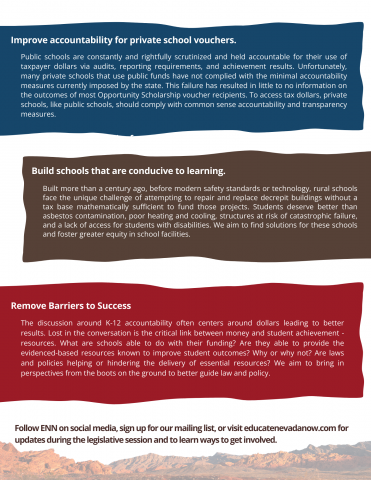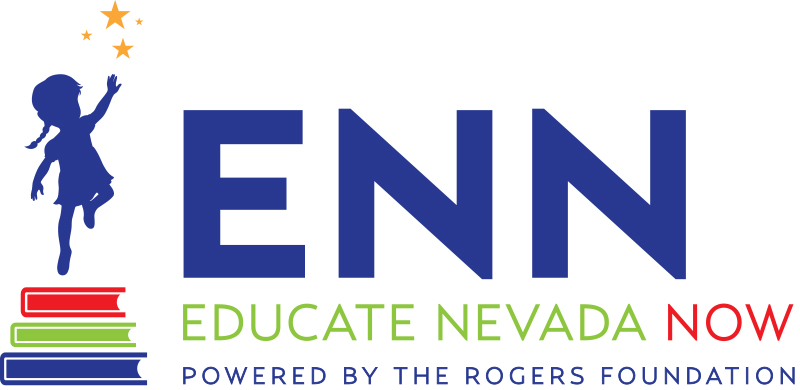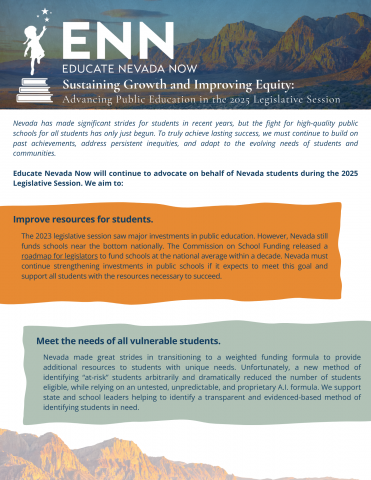The 83rd Legislative Session began on February 3, 2025!
ENN looks forward to advocating on behalf of Nevada students during this critically important legislative session. Please check out our “Legislative Cheat Sheet,” for the latest on education-related topics, proposed bills, and budgets during session. We will also be sharing updates via our newsletter, so sign up here.
ENN K-12 Legislative Priorities
Nevada has made significant strides for students in recent years, but the fight for high-quality public schools for all students has only just begun. To truly achieve lasting success, we must continue to build on past achievements, address persistent inequities, and adapt to the evolving needs of students and communities.
Educate Nevada Now will continue to advocate on behalf of Nevada students during the 2025 Legislative Session. We aim to:
Improve resources for students.
The 2023 legislative session saw major investments in public education. However, Nevada still funds schools near the bottom nationally. The Commission on School Funding released a roadmap for legislators to fund schools at the national average within a decade. Nevada must continue strengthening investments in public schools if it expects to meet this goal and support all students with the resources necessary to succeed.
Meet the needs of all vulnerable students.
Nevada made great strides in transitioning to a weighted funding formula to provide additional resources to students with unique needs. Unfortunately, a new method of identifying “at-risk” students arbitrarily and dramatically reduced the number of students eligible, while relying on an untested, unpredictable, and proprietary A.I. formula. We support state and school leaders helping to identify a transparent and evidenced-based method of identifying students in need.
Improve accountability for private school vouchers.
Public schools are constantly and rightfully scrutinized and held accountable for their use of taxpayer dollars via audits, reporting requirements, and achievement results. Unfortunately, many private schools that use public funds have not complied with the minimal accountability measures currently imposed by the state. This failure has resulted in little to no information on the outcomes of most Opportunity Scholarship voucher recipients. To access tax dollars, private schools, like public schools, should comply with common sense accountability and transparency measures.
Build schools that are conducive to learning.
Built more than a century ago, before modern safety standards or technology, rural schools face the unique challenge of attempting to repair and replace decrepit buildings without a tax base mathematically sufficient to fund those projects. Students deserve better than asbestos contamination, poor heating and cooling, structures at risk of catastrophic failure, and a lack of access for students with disabilities. We aim to find solutions for these schools and foster greater equity in school facilities.
Remove Barriers to Success.
The discussion around K-12 accountability often centers around dollars leading to better results. Lost in the conversation is the critical link between money and student achievement – resources. What are schools able to do with their funding? Are they able to provide the evidenced-based resources known to improve student outcomes? Why or why not? Are laws and policies helping or hindering the delivery of essential resources? We aim to bring in perspectives from the boots on the ground to better guide law and policy.
View and download our Legislative Priorities here


